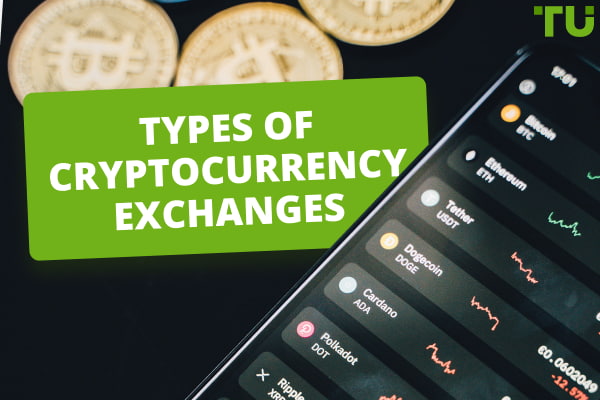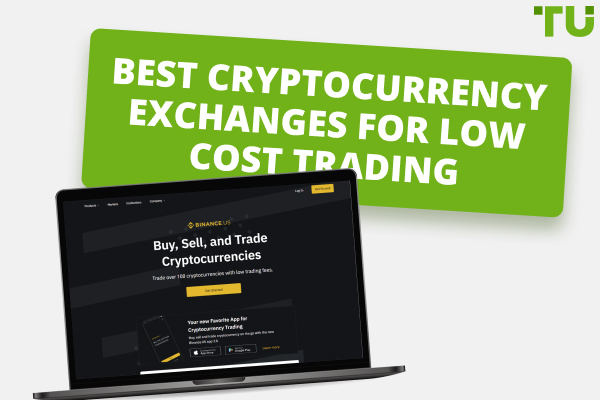Best Crypto CFD Broker List

The best crypto CFD broker - IC Markets
Best crypto CFD brokers are:
-
IC Markets - low spreads - from 0 pips, 23 supported coins;
-
Exness - instant withdrawal of money 24/7;
-
FxPro - Negative Balance Protection of a client on a real account;
-
VantageFX - free trading signals for traders.
Choosing crypto CFD brokers allows traders to speculate on the price movements of cryptocurrencies without owning the actual assets, providing exposure to the volatile crypto market with potential for profits or losses. This article provides insights into Crypto CFD trading, offering readers a comprehensive list of the best cfd brokers in the industry.
Each review will highlight the broker's regulatory status, trading conditions, and other key features. By the end of the article, readers will clearly understand the pros and cons of crypto CFD trading and be well-equipped to make informed decisions about their investment options.
What are crypto CFDs?
Many people ask: what is cfd? Crypto CFDs, or Contracts for Difference, enable traders to speculate on the price movements of cryptocurrencies such as Bitcoin without owning the actual digital asset. Essentially, CFDs mirror the price fluctuations of the underlying crypto asset. These financial instruments are derivatives that allow traders to profit from the future market movements of an asset without physically owning or taking delivery of it. Available for a variety of assets like stocks, commodities, and Forex, CFDs are particularly popular in the crypto realm due to the volatile nature of digital currencies.
Top 4 crypto CFD brokers compared
| Broker | Minimum deposit | Cryptocurrencies available | Types of account for Bitcoin trading |
|---|---|---|---|
|
$200 |
23 cryptocurrencies, including Bitcoin, Ethereum, Dash, EOS, Litecoin, Ripple, etc. |
Raw spread, Standard |
|
|
$10 |
27 crypto pairs including Bitcoin, Ethereum, Ripple, Bitcoin Cash, and Litecoin. |
Standard accounts on MT4, MT5 and MT4 Cent accounts. |
|
|
$100 |
25 crypto pairs including Bitcoin, Ethereum, ADA, Ripple, Bitcoin Cash, TRX, BAT and Litecoin. |
Standard, Pro |
|
|
$50 |
Bitcoin, Ethereum, Ethereum Classic, Solana |
Standard |
IC Markets - low spreads - from 0 pips
Founded in 2007, and based in Sydney, IC Markets operates globally with licenses from SFSA, ASIC, and CySEC, ensuring regulatory compliance across jurisdictions. Traders can start with a minimum deposit of $200 and enjoy leverage of up to 1:500. The spreads are competitive, starting from 0.6 pips for Standard accounts and 0.0 pips for cTrader and Raw Spread accounts. IC Markets offers over 2,100 instruments, including 60+ currency pairs and various CFDs on futures, indices, commodities, and cryptocurrencies.
IC Markets lets you trade cryptocurrencies on MetaTrader 4/5 with 1:200 leverage (1:5 on cTrader) 7 days a week. Moreover, you can experience a market free from central bank intervention and dominated by retail speculators. It’s FSA regulated, with no commissions, and dedicated live support.
Exness - instant withdrawal of money 24/7
Since 2008, Exness has held regulatory licenses in jurisdictions including the UK, Cyprus, Seychelles, and more. Catering to traders worldwide, Exness offers CFDs on cryptocurrency, over 120 currency pairs, energy, and metals. The monthly trading turnover impressively reaches USD 325.8 billion.
Trading conditions favor traders with low commissions and swift execution. Minimum deposits vary $1 for Standard accounts and $200 for advanced accounts like Raw Spread and Zero. Leverage can soar to 1:2000 initially. The spreads are competitive, starting from 0.3 pips. There are no hidden trading commissions or non-trading commissions for fund movements.
Exness lets you trade cryptocurrencies cfd continuously, except during maintenance. You can enjoy fixed margin requirements, no swap charges, and up to 1:200 leverage with 0.01-second execution.
FxPro - Negative Balance Protection of a client on a real account
Since its inception in 2006, FxPro has flourished in over 170 countries, with licenses from regulators like CySEC, FCA, and more. With a rich asset pool of over 2,100 trading instruments, FxPro provides trading opportunities on currencies, stocks, and cryptocurrencies.
The minimum deposit is flexible, starting from $100, and traders can leverage up to 1:200, jurisdiction dependent. Spreads begin at a mere 0.1 pips. Additionally, FxPro emphasizes the safety of client funds, ensuring they're kept in prominent international banks.
FxPro provides CFDs on various cryptocurrencies, including Bitcoin, Ethereum, Litecoin, BitcoinCash, Ripple, and others.
VantageFX - free trading signals for traders
An STP broker since 2009, Vantage Markets operates under licenses from regulators such as the FCA and ASIC. They present a diverse portfolio to traders, offering 44 currency pairs, 226 stock CFDs, 16 indices, and 19 commodities.
The minimum deposit is $200, with leverage options up to 1:500 for currency pairs. Spreads for the Standard STP account begin at 1.4 pips, while ECN accounts operate on a flat fee structure. Notably, there are no deposit or withdrawal fees, making Vantage Markets a cost-effective choice for traders.
With VantageFX, trade cryptocurrency CFDs on MT4 and MT5 platforms, accessing over 40 coins like Bitcoin, Ethereum, Solana, and more. You can benefit from 0.0 spreads, no commissions, and a $50 minimum deposit. Hedge with up to 2:1 leverage, enjoy swap-free accounts, and experience reliable execution with deep liquidity pools.
How do traditional CFDs work?
Traditional Contracts for Difference (CFDs) are intricate financial instruments that offer a method for traders to benefit from price fluctuations in various markets without owning the asset involved. At its core, a CFD is an agreement between a trader and a broker to exchange the difference in the current value of a particular asset and its value at the end of the contract. Here’s a brief breakdown:
Asset variety. CFDs cover various assets such as stocks, commodities, indices, and foreign currencies.
No ownership. A distinct characteristic of CFDs is that you never own the underlying asset. Instead, you are speculating on its future price movement.
Leverage. CFDs often come with leverage, meaning you can control a larger position with less capital.
Profit from rising and falling markets. If you think the asset will increase in value, you “go long”. If you believe it will decrease, you “go short”. If your prediction is correct, you profit; if not, you face a loss.
How do cryptocurrency CFD trading work?
Cryptocurrency CFD offers a chance to profit from the volatile crypto market without owning digital coins. Here's a more in-depth look:
Choosing a cryptocurrency. Traders first select a crypto pairing, like BTC/USD or ETH/BTC.
Opening a position. This involves deciding to “go long” (anticipating a price rise) or “go short” (expecting a price drop).
Speculating on price movements. This is the essence of CFD trading. The aim is to predict where the price will go.
Margin and leverage. Crypto CFDs typically come with significant leverage, meaning you can control a large position with minimal capital. However, this also amplifies both potential profits and losses.
Tracking price changes. Monitor the market and use various analytical tools to make informed decisions.
Exiting the position. Traders can close their position whenever they see fit to secure profits or cut losses.
Costs and considerations. Trading CFDs comes with financing and spreads fees.
Is crypto CFD trading legal?
The legal status of cryptocurrency CFD trading largely depends on the individual country's regulations. Due to the decentralized nature of cryptocurrencies, many governments tread carefully, aiming to regulate cryptos without stifling innovation.
Are crypto CFDs risky?
Absolutely, engaging in Crypto CFDs introduces traders to a suite of significant risks that are essential to understand and navigate:
Counterparty risk. One of the primary risks of Crypto CFD trading lies in the contract. A CFD is essentially an agreement between you, the trader, your broker, or the CFD provider. The "counterparty" in this scenario is the CFD provider. The essence of the risk is straightforward: what if the CFD provider fails to honor its financial commitments? Such a failure could be due to various reasons, including bankruptcy, financial mismanagement, or outright fraud. Suppose the CFD provider were to default or not meet its obligations. In that case, it might render your contract entirely worthless, regardless of how well the underlying asset (in this case, cryptocurrency) performs. It’s akin to having a winning bet on a horse race, but the bookmaker refuses or is unable to pay you.
Market risk. Cryptocurrencies are infamously volatile. The prices of digital coins can skyrocket, but they can also plummet, all within short time frames. This erratic movement, fueled by factors like regulatory news, technological advancements or failures, and market sentiment, means that even minor news snippets can swing prices drastically in either direction. Thus, when trading Crypto CFDs, there's an ever-present risk that the market might move against your position. For instance, you might predict that Bitcoin will rise and "go long" on a Bitcoin CFD. However, if an influential government suddenly bans Bitcoin transactions, the price might plummet, leading to significant losses on your CFD position.
Liquidity risks and gapping. Liquidity is the ease with which an asset can be quickly converted into cash without affecting its price. Highly liquid markets have many trades and orders, while illiquid markets might have few participants and trades. In certain market conditions, especially turbulent ones, CFDs can become illiquid. This lack of liquidity can pose challenges when you try to close your position at a desired price. There aren't enough buyers or sellers to take the opposite side of your trade. Furthermore, the fast-paced nature of cryptocurrency markets can lead to "gapping”. This is when the price of an asset jumps significantly, with no trades occurring at prices in between. For example, Bitcoin might be trading at $40,000 one moment and $35,000 a moment later, with no trades at $39,000, $38,000, and so on. Rapid price changes can harm traders, especially those using leverage, as their positions can be liquidated unexpectedly.
FAQs
Can you do a CFD on Crypto?
Yes, Cryptocurrency CFDs are tradable contracts that allow speculations on the price movement of crypto pairs like BTC/USD.
Is CFD trading legal in Europe?
CFD trading is legal in most of Europe and other significant markets like Australia and Canada. However, it's banned in countries like the United States.
Which countries are CFD banned?
CFD trading is prohibited in the United States, Belgium, and Hong Kong.
Has anyone made money in CFD trading?
Yes, while many traders incur losses, others profit through CFD trading. However, success requires discipline, practice, strategy, and a solid market understanding.
Glossary for novice traders
-
1
CFD
CFD is a contract between an investor/trader and seller that demonstrates that the trader will need to pay the price difference between the current value of the asset and its value at the time of contract to the seller.
-
2
Volatility
Volatility refers to the degree of variation or fluctuation in the price or value of a financial asset, such as stocks, bonds, or cryptocurrencies, over a period of time. Higher volatility indicates that an asset's price is experiencing more significant and rapid price swings, while lower volatility suggests relatively stable and gradual price movements.
-
3
Cryptocurrency
Cryptocurrency is a type of digital or virtual currency that relies on cryptography for security. Unlike traditional currencies issued by governments (fiat currencies), cryptocurrencies operate on decentralized networks, typically based on blockchain technology.
-
4
ECN
An ECN, or Electronic Communication Network, is a technology that connects traders directly to market participants, facilitating transparent and direct access to financial markets.
-
5
Futures contract
A futures contract is a standardized financial agreement between two parties to buy or sell an underlying asset, such as a commodity, currency, or financial instrument, at a predetermined price on a specified future date. Futures contracts are commonly used in financial markets to hedge against price fluctuations, speculate on future price movements, or gain exposure to various assets.
Team that worked on the article
Alamin Morshed is a contributor at Traders Union. He specializes in writing articles for businesses that want to improve their Google search rankings to compete with their competition. With expertise in search engine optimization (SEO) and content marketing, he ensures his work is both informative and impactful.
Dr. BJ Johnson is a PhD in English Language and an editor with over 15 years of experience. He earned his degree in English Language in the U.S and the UK. In 2020, Dr. Johnson joined the Traders Union team. Since then, he has created over 100 exclusive articles and edited over 300 articles of other authors.
Mirjan Hipolito is a journalist and news editor at Traders Union. She is an expert crypto writer with five years of experience in the financial markets. Her specialties are daily market news, price predictions, and Initial Coin Offerings (ICO).















